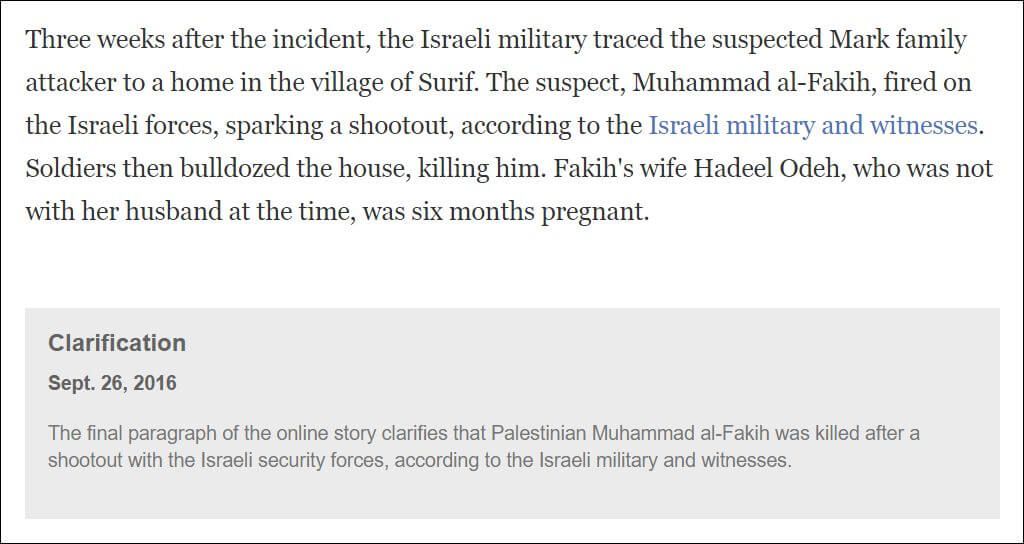UPDATE
After being contacted by HonestReporting, NPR has updated its story to reflect the facts:
* * *
National Public Radio’s “All Things Considered” produced a rare segment exploring some of the true complexity in the Israeli-Palestinian conflict.
The program described the story of a Palestinian man who helped Jewish terror victims in the wake of the much publicized attack on Rabbi Micky Mark last July. The Palestinian man (who has insisted on remaining anonymous) likely saved several lives due to his quick and selfless impulse to help.
Shortly afterward, this same Palestinian man was subjected to tremendous pressure from Palestinian society: including losing his job and suffering public insults. It was at that point that Yochai Damari, head of the local Jewish settlers’ council, stepped in to help this Palestinian man get his life back on track.
Join the fight for Israel’s fair coverage in the news
This is a kind of depth and complexity that we rarely see in mainstream media.
Yet NPR made a critical and disturbing error. Toward the end of the article, NPR writes:
Three weeks after the incident, the Israeli military traced the Mark family attacker to a home in the village of Surif. That night, soldiers bulldozed the house, killing him. His wife Hadeel Odeh, who was not with her husband at the time, is six months pregnant.
(emphasis added)
In a breach of journalistic ethics, NPR failed to include this critical context:
The attempt to arrest Mohamed al Fakih (Rabbi Mark’s killer) turned into a shootout only after Fakih, along with an entire armed cell of terrorists, opened fire on the IDF.
The soldiers returned fire, and after a lengthy shootout, Fakih died in the very gun battle he had started.
NPR’s version of events gives the impression that Fakih was a victim who was bulldozed to death in his home, rather than a terrorist who had turned his home into an armed camp, and his neighborhood into a war zone.
NPR is not the first news agency to make this error, and HonestReporting has previously written about it in depth.
HonestReporting has contacted NPR for correction.




